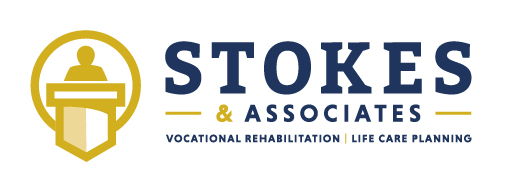Establishing Earning Capacity of a Business Owner
Vocational experts typically rely on several sources to help develop opinions regarding one’s earning capacity, including self-reported earnings, statistics, payroll documentation, and tax records. There are situations in which one resource may be a better representation of an individual’s earning capacity. A complicated example is assessing the earning capacity of a business owner. There is no specific reference to statistical wages for business owners when trying to support earning capacity. Therefore, using tax records as a foundation for one’s opinion is often necessary.
The business’ tax documents are studied to determine the gross earnings of the company, along with documented expenses required to operate the business. The documentation should outline business expenses, including materials and supplies, employee compensation and benefits, company vehicles, repairs and maintenance, advertising, rents, depreciation, taxes, and licenses, etc. Assuming the business owner has accurate records, the expenses can be deducted from the gross earnings to develop a reasonable estimate of the profit the business made for that calendar year, and thus earning capacity.
Consider a scenario involving the owner of a small pile driving company whose gross annual earnings are $550,000.00. Business expenses would include employee compensation, pilings, and related materials, rental fees, and maintenance of equipment used to drive the pilings, mortgage or rent for the warehouse and small office, company trucks and fuel, insurance, etc., for a total of $375,000.00. After deductions for expenses, the net income is $175,000.00. The net income may or may not be an accurate representation of the owner’s earnings for that year, depending on several factors, one of which would be whether the owner drew a salary. In that case, his salary plus net income would represent his earnings for the year.
Vocational experts must also consider that people do not always submit proper, accurate, or complete information to the IRS, rendering tax documentation unreliable. As a result, the approximated earnings would be invalid if the vocational expert were to rely solely on tax documents. It is the expert’s responsibility to request the full and accurate tax documentation as support for their opinion on an individual’s earning capacity as a business owner.
To strategize with one of our vocational or life care plan experts at Stokes & Associates, please call David Barrett at 504-454-5009, visit our website, www.stokes-associates.com, or e-mail dbarrett@stokes-associates.com.
Larry S. Stokes, Ph.D.
Aaron Wolfson, Ph.D.
Lacy Sapp, Ph.D.
Todd Capielano, M.Ed., LRC, CRC, LPC, CLC
Ashley Lastrapes, MHS, CRC, CCM, CLCP, LPC, LRC
Brandy Bradley, MHS, CRC, LRC, CLCP
